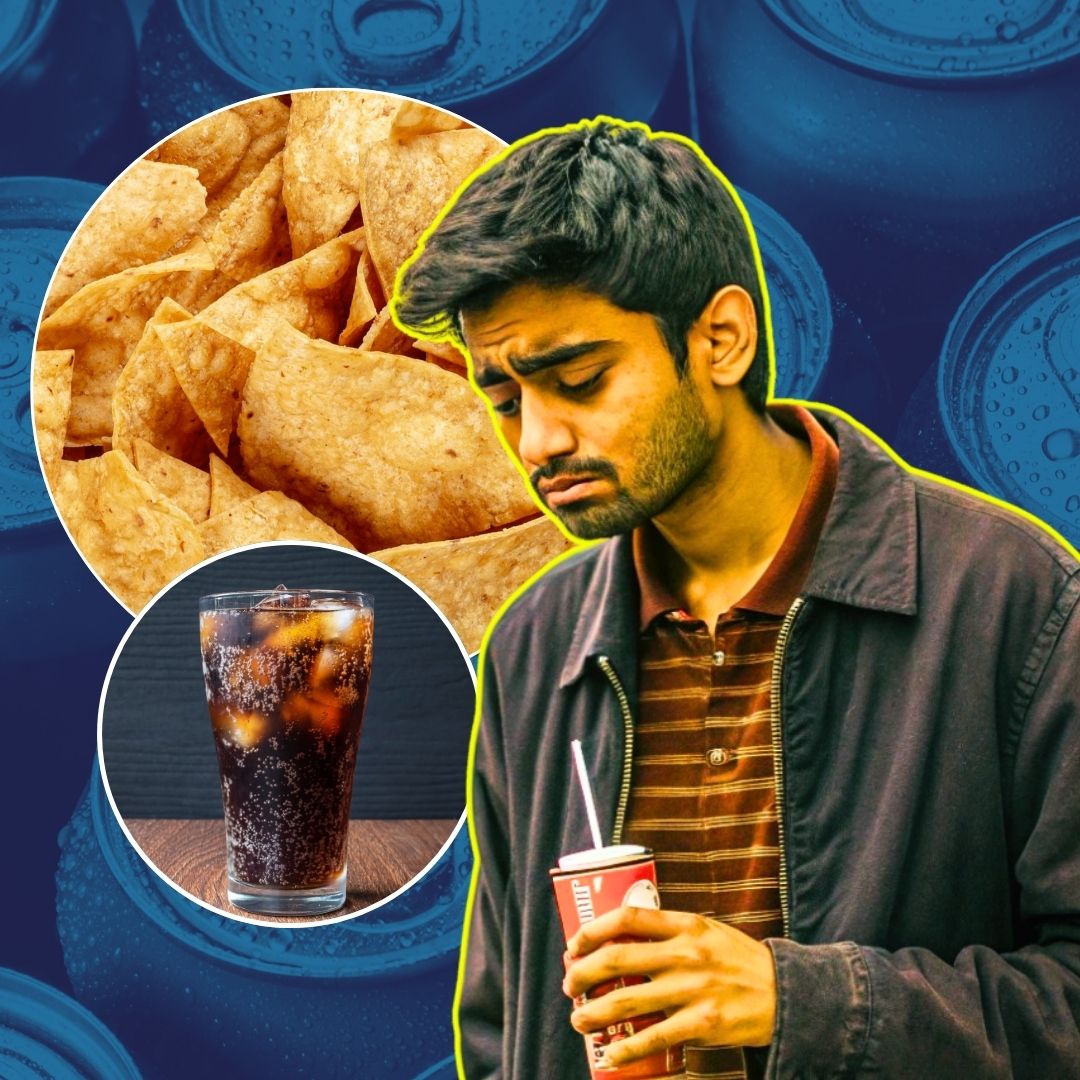Excessive consumption of packaged drinks-such as sugar-sweetened beverages (SSBs), energy drinks, and artificially sweetened beverages (ASBs)-poses significant health risks worldwide. These drinks contribute to millions of new cases of type 2 diabetes, cardiovascular disease (CVD), liver disease, and certain cancers annually.
Vulnerable groups, including children, adolescents, and postmenopausal women, are particularly at risk. Low- and middle-income countries (LMICs), including India, face disproportionate impacts due to urbanisation and aggressive marketing.
Public health experts call for urgent policy action, consumer education, and promotion of healthier alternatives. Beverage companies emphasise consumer choice, while many consumers remain unaware of the full risks. Recent studies from 2024-2025 highlight the urgent need for coordinated global efforts to reduce consumption and protect health.
The Rise of Packaged Drinks Worldwide and India’s Rapid Shift
Packaged drinks like sodas, energy drinks, and artificially sweetened beverages have become dietary staples globally. Urbanisation, rising incomes, and intense marketing have driven their popularity, especially in LMICs.
India exemplifies this rapid transformation. Over half of Indian households now regularly consume bottled soft drinks, with average per capita consumption projected to nearly double from 44 bottles per year in 2016 to 84 bottles by 2021. This growth is fuelled by urbanisation, rising incomes, and narrowing rural-urban consumption gaps. Carbonated lemon-based beverages, bottled water, and packaged juices are among the fastest-growing segments.
The packaged food sector in India mirrors this trend. The market size for ultra-processed foods-including snacks, sweets, biscuits, cold beverages, and ready-to-eat meals-grew at a compound annual growth rate of 10% from 2019, reaching ₹2.58 lakh crore in 2024 and projected to rise to ₹3.98 lakh crore by 2029.
Notably, the share of packaged, highly processed foods in household food budgets doubled from 6.5% in 2015 to 12% in 2019, reflecting a significant pivot towards convenience and ready-to-eat options.
The latest Household Consumption Expenditure Survey (2023-24) found that nearly 10% of rural and 11% of urban monthly food spending now goes to processed foods and beverages-surpassing expenditure on fruits, vegetables, cereals, and even protein sources like eggs, fish, and meat.
What Are Packaged Foods and Soft Drinks-and What Do They Contain in Excess?
Packaged foods are defined as items sealed in packaging that cannot be altered without tampering. Ultra-processed foods-including most packaged snacks and drinks-are typically high in added sugars, salt, unhealthy fats, artificial additives, preservatives, and flavour enhancers.
Soft drinks-a major subset-are water-based flavoured beverages, usually carbonated and sweetened with sugar, high-fructose corn syrup, or artificial sweeteners. They often contain caffeine, colourings, and preservatives.
Sugary drinks-including sodas, sweetened juices, and energy drinks-are calorie-dense but nutritionally poor. For example, a single glass of packaged, sweetened juice can contain up to 180 calories, equivalent to three chocolate chip cookies. Consuming just one glass of soda daily for a year can add up to 55,000 calories, potentially leading to a weight gain of 6 kg. These drinks provide little to no nutritional benefit, do not satisfy hunger, and are often referred to as “wasted calories” by health experts.
Sugar Overload and Metabolic Health
Sugar-sweetened beverages cause rapid blood glucose spikes, leading to insulin resistance and increased risk of type 2 diabetes. A 2025 global study estimated that sugary drinks caused about 2.2 million new diabetes cases worldwide in 2020.
Sugary drinks also contribute to obesity by providing “empty calories” that don’t promote fullness, encouraging overeating. This leads to metabolic syndrome-a cluster of conditions including high blood pressure and abnormal cholesterol-that raises cardiovascular risk.
Cardiovascular Disease and Premature Death
Sugary drink consumption is strongly linked to cardiovascular disease, the world’s leading cause of death. A 2025 meta-analysis showed that drinking two or more servings daily increases cardiovascular mortality risk by 31% and overall premature death risk by 21%.
High sugar and sodium content in these drinks contribute to hypertension, elevated triglycerides, and reduced “good” cholesterol, accelerating heart disease and stroke.
Liver Disease and Cancer Risks
Excess fructose from sugary drinks is metabolised in the liver, promoting fat buildup and inflammation, leading to nonalcoholic fatty liver disease (NAFLD). Postmenopausal women consuming one or more sugary drinks daily face a 68% higher risk of death from chronic liver diseases.
Emerging research links sugary drinks to increased oral cavity cancer risk, especially in women. Chronic inflammation and microbiome disruption caused by sugar are suspected factors. Obesity and insulin resistance linked to sugary drinks also increase risks for pancreatic, breast, and endometrial cancers.
Gout and Bone Health
Long-term studies show women consuming a daily sugary soda have a 75% higher risk of gout, a painful arthritis caused by uric acid crystals. Sodas’ high phosphate content can disrupt calcium balance, negatively affecting bone health, especially in children and adolescents who often replace milk with soft drinks.
Energy Drinks: Risks Beyond Sugar
Energy drinks combine high sugar with stimulants like caffeine and taurine. Experts warn they can cause seizures, cardiac arrhythmias, strokes, and behavioural issues, particularly in adolescents and vulnerable individuals. The American Academy of Pediatrics advises children and teenagers to avoid energy drinks due to these risks.
Artificially Sweetened Beverages: Not Harmless
Artificially sweetened beverages, often used as sugar-free alternatives, are linked to increased risks of obesity, diabetes, hypertension, cardiovascular disease, and mortality when consumed excessively. Some sweeteners may disrupt gut microbiota and metabolic regulation.
Nutritional and Behavioural Consequences
Packaged sugary drinks displace healthier beverages like water and milk, leading to poorer diet quality and nutrient deficiencies, including calcium and vitamin D. Rapid blood sugar changes can cause mood swings and cognitive issues. High caffeine intake from energy drinks may worsen anxiety and sleep problems, especially in youth.
Socioeconomic and Global Disparities
LMICs and lower socioeconomic groups in wealthier countries suffer disproportionately from health harms related to packaged drinks. These populations often have limited access to healthier options and face aggressive marketing tactics.
Expert Recommendations
- Limit sugary and energy drink intake: Regular consumption significantly increases health risks.
- Choose healthier drinks: Water, unsweetened teas, and 100% natural fruit juices without added sugars are best.
- Avoid energy drinks for youth and vulnerable groups: Due to stimulant risks.
- Read labels carefully: Sugar and caffeine content vary widely.
- Support public health policies: Sugary drink taxes, marketing restrictions, and education campaigns are effective.
- Promote balanced diets: Emphasise whole foods and nutrient-rich meals.
The Logical Indian’s Perspective
At The Logical Indian, we believe protecting public health while respecting individual freedom requires empathy, education, and dialogue. Excessive packaged drink consumption is a preventable cause of chronic illness that burdens families and healthcare systems. We support compassionate, evidence-based policies promoting informed choices and access to healthier options without blame or coercion.










